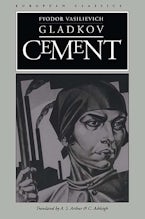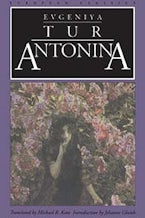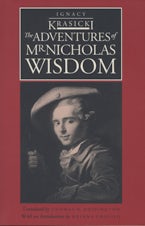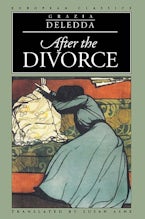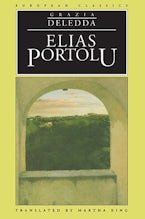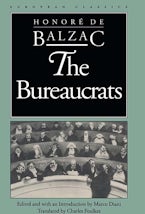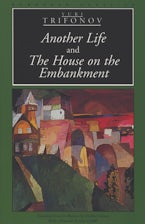European Classics
Showing results 1-10 of 48
Filter Results OPEN +

Cement
A classic of socialist realism, Cement became a model for Soviet fiction in the decades following its publication in the early 1920s. Gleb, a soldier hero, returns from the revolution to a world in transition, as demonstrated by the reorganization of the local cement factory for the massive national effort. His wife, Dasha, is now a leader of the Women's Section of the Communist Party, an activist in a society where women are suddenly men's equals. Gleb finds that he cannot easily pick up the threads of their old relationship or adjust to this new social order.
The Dangerous Age
Elsie Lindtner is a woman at the "dangerous age" of forty-two in a society that values women only as marriageable items. After twenty-two years of comfortable but loveless marriage, Elsie divorces her husband and goes off to live alone on an island. But little by little her longing for solitude is tempered by the realities of loneliness and sexual deprivation.
Antonina
Patterned on the novels of the Brontë sisters, Antonina is a poignant account of a young Russian whose life is shaped by the cruel neglect of her stepparents, the financial ruin of her father and husband, and—the centerpiece of the novel—her failed love affair with a sensitive but weak young man.
The Adventures of Mr. Nicholas Wisdom
Winner of the 1993 PEN Book-of-the-Month Club Translation Prize
Published in 1776 and considered the first Polish novel ever written, The Adventures of Mr. Nicholas Wisdom is a picaresque tale following the naïve title character's coming of age. Having conquered (and fled) sophisticated Warsaw, Nicholas enjoys many adventures across Europe, South America, and the high seas. He finally lands among the natives of an unknown isle who reject his allegedly superior European ways and instead tutor him for an "enlightened" existence. Resonant with Enlightenment ideas, The Adventures of Mr. Nicholas Wisdom provides a sly portrait of the era's Polish society and a fascinating perspective on the broader problems of eighteenth-century European culture.
After the Divorce
Winner of the 1926 Nobel Prize in Literature
In this tragic novel set in the author's native Sardinia, Constantino Ledda has been convicted and sentenced for the murder of his cruel uncle. Though innocent of the crime, he accepts the verdict as punishment for marrying Giovanna Era through a civil ceremony rather than an expensive church wedding. When Constantino is taken away, Giovanna has no way to provide for herself or family, and out of desperation divorces her husband and marries a wealthy but brutish landowner. When the real killer confesses and Constantino is released, he and Giovanna begin a forbidden and ultimately destructive affair.
Elias Portolu
After serving time in mainland Italy for a minor theft, Elias Portolu returns home to Nuoro, in rural Sardinia. Lonely and vulnerable after his prison exile, he falls in love with his brother's fiancée. But he finds himself trapped by social and religious strictures, his passion and guilt winding into a spiral of anguish and paralyzing indecision. For guidance he turns first to the village priest, who advises him to resist temptation; then he turns to the pagan "father of the woods," who recognizes the weakness of human will and urges him to declare his love before it is too late.
The Bureaucrats
The Bureaucrats (Les Employes) stands out in Balzac's immense Human Comedy by concentrating precisely and penetratingly on a distinctive "modern" institution: France's state bureaucracy. Rabourdin, aided by his unscrupulous wife, attempts to reorganize and streamline the entire system. Rabourdin's plan will halve the government's size while doubling its revenue. When the plan is leaked, Rabourdin's rival—an utter incompetent—gains the overwhelming support of the frightened and desperate body of low-ranking functionaries.
Another Life and The House on the Embankment
Widely regarded as a major writer of his generation, Yuri Trifonov tolerated attack and admiration in the Soviet Union. His novellas are celebrated as being in the tradition of great nineteenth-century Russian writing. In "Another Life," a woman suddenly widowed attempts to grasp the memory of her brilliant, erratic husband, and to understand their life together. "The House on the Embankment" is the story of an academic opportunist who rises to apparatchik but suffers the oppression of society, friends, and most of all his inability to make decisions.
Encyclopedia of the Dead
In these stories Kis depicts human relationships, encounters, landscapes- the multitude of details that make up a human life.
The Sylph
This ranging epistolary novel follows Julia Grenville, a Welsh beauty who knows little of the world until her marriage to the older Lord Stanley. Through Julia’s...

Cement
A classic of socialist realism, Cement became a model for Soviet fiction in the decades following its publication in the early 1920s. Gleb, a soldier hero, returns from the revolution to a world in transition, as demonstrated by the reorganization of the local cement factory for the massive national effort. His wife, Dasha, is now a leader of the Women's Section of the Communist Party, an activist in a society where women are suddenly men's equals. Gleb finds that he cannot easily pick up the threads of their old relationship or adjust to this new social order.
The Dangerous Age
Elsie Lindtner is a woman at the "dangerous age" of forty-two in a society that values women only as marriageable items. After twenty-two years of comfortable but loveless marriage, Elsie divorces her husband and goes off to live alone on an island. But little by little her longing for solitude is tempered by the realities of loneliness and sexual deprivation.
Antonina
The Adventures of Mr. Nicholas Wisdom
Winner of the 1993 PEN Book-of-the-Month Club Translation Prize
Published in 1776 and considered the first Polish novel ever written, The Adventures of Mr. Nicholas Wisdom is a picaresque tale following the naïve title character's coming of age. Having conquered (and fled) sophisticated Warsaw, Nicholas enjoys many adventures across Europe, South America, and the high seas. He finally lands among the natives of an unknown isle who reject his allegedly superior European ways and instead tutor him for an "enlightened" existence. Resonant with Enlightenment ideas, The Adventures of Mr. Nicholas Wisdom provides a sly portrait of the era's Polish society and a fascinating perspective on the broader problems of eighteenth-century European culture.
Published in 1776 and considered the first Polish novel ever written, The Adventures of Mr. Nicholas Wisdom is a picaresque tale following the naïve title character's coming of age. Having conquered (and fled) sophisticated Warsaw, Nicholas enjoys many adventures across Europe, South America, and the high seas. He finally lands among the natives of an unknown isle who reject his allegedly superior European ways and instead tutor him for an "enlightened" existence. Resonant with Enlightenment ideas, The Adventures of Mr. Nicholas Wisdom provides a sly portrait of the era's Polish society and a fascinating perspective on the broader problems of eighteenth-century European culture.
After the Divorce
Winner of the 1926 Nobel Prize in Literature
In this tragic novel set in the author's native Sardinia, Constantino Ledda has been convicted and sentenced for the murder of his cruel uncle. Though innocent of the crime, he accepts the verdict as punishment for marrying Giovanna Era through a civil ceremony rather than an expensive church wedding. When Constantino is taken away, Giovanna has no way to provide for herself or family, and out of desperation divorces her husband and marries a wealthy but brutish landowner. When the real killer confesses and Constantino is released, he and Giovanna begin a forbidden and ultimately destructive affair.
In this tragic novel set in the author's native Sardinia, Constantino Ledda has been convicted and sentenced for the murder of his cruel uncle. Though innocent of the crime, he accepts the verdict as punishment for marrying Giovanna Era through a civil ceremony rather than an expensive church wedding. When Constantino is taken away, Giovanna has no way to provide for herself or family, and out of desperation divorces her husband and marries a wealthy but brutish landowner. When the real killer confesses and Constantino is released, he and Giovanna begin a forbidden and ultimately destructive affair.
Elias Portolu
After serving time in mainland Italy for a minor theft, Elias Portolu returns home to Nuoro, in rural Sardinia. Lonely and vulnerable after his prison exile, he falls in love with his brother's fiancée. But he finds himself trapped by social and religious strictures, his passion and guilt winding into a spiral of anguish and paralyzing indecision. For guidance he turns first to the village priest, who advises him to resist temptation; then he turns to the pagan "father of the woods," who recognizes the weakness of human will and urges him to declare his love before it is too late.
The Bureaucrats
The Bureaucrats (Les Employes) stands out in Balzac's immense Human Comedy by concentrating precisely and penetratingly on a distinctive "modern" institution: France's state bureaucracy. Rabourdin, aided by his unscrupulous wife, attempts to reorganize and streamline the entire system. Rabourdin's plan will halve the government's size while doubling its revenue. When the plan is leaked, Rabourdin's rival—an utter incompetent—gains the overwhelming support of the frightened and desperate body of low-ranking functionaries.
Another Life and The House on the Embankment
Widely regarded as a major writer of his generation, Yuri Trifonov tolerated attack and admiration in the Soviet Union. His novellas are celebrated as being in the tradition of great nineteenth-century Russian writing. In "Another Life," a woman suddenly widowed attempts to grasp the memory of her brilliant, erratic husband, and to understand their life together. "The House on the Embankment" is the story of an academic opportunist who rises to apparatchik but suffers the oppression of society, friends, and most of all his inability to make decisions.
Encyclopedia of the Dead
In these stories Kis depicts human relationships, encounters, landscapes- the multitude of details that make up a human life.
The Sylph
This ranging epistolary novel follows Julia Grenville, a Welsh beauty who knows little of the world until her marriage to the older Lord Stanley. Through Julia’s...

